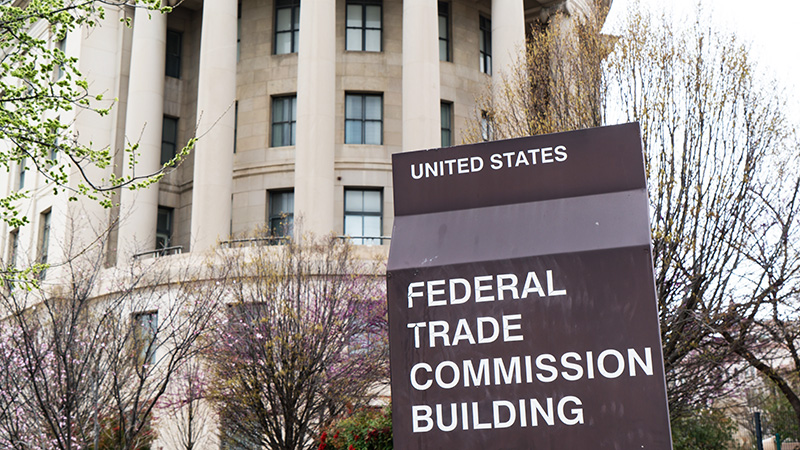
Angle

Class Action Email Notifications: Separating The Settlements From The Spam
- Class Action & Mass Tort
- 6 Mins
Overview of Report
The report was a response to a recent federal rule that encouraged lawyers to use electronic means to notify affected consumers about class actions. The Federal Rule of Civil Procedure (FRCP) Rule 23’s requires that lawyers should use “the best notice that is practicable under the circumstances” for consumers. In the FTC report, the FTC focused on two studies: one study, the “administrator study,” which collected data from 149 administrators about large class actions and a second study, the “notice study,” in which the FTC emailed 8,000 fake class action settlement notices to random people to gauge their reactions. Both studies evaluated how certain key variables, such as the type of notice, redress availability, and compensation amount, effected critical outcomes, like claim filing and check cashing rates. The report had several observations about the studies’ findings and conclusions.
In the “administrator study”, the main goal was examine relationship between notice characteristics and settlement outcomes. The study observed the following behaviors:
- The overall average claims rate was 9%. For specific notice mechanisms, notice packets had 16% claim rate, postcards had 7% claims rate, and emails had a 2% claims rate.
- Using direct notice produced an 11% average claim rate. Notably, combining publication with direct notice had little to no significant effect on claim rates.
- While changes in compensation rates did not cause increased claim rates, there were higher instances of check cashing when the average compensation was higher.
- Using plain language (including words like money, cash, refund, and reimbursement) as opposed to complex terms had the most significant influence on increased claim rates.
The “notice study” evaluated what type of factors influence a consumer’s knowledge of class action notices and the options available to them. The study uses email notifications to examine the types of factors, like sender address, subject line wording, email format, and court seal, that most influenced consumers. The FTC observed the following outcomes:
- Overall, less than half of the consumers understood that the email pertained to a class action settlement or refund.
- When consumers decided to open the email, the highest opening rates occurred when the subject line included no information on the class action or compensation.
- Once the consumer opened the email, the use of long-format emails with formal, legal language improved participant’s grasp of the class action settlement or refund requirement. Puzzling, the study also noted that emails with streamlined instructions and simpler language helped the respondent understand their next steps.
Looking to the Future of Class Action Notifications
So what do these results mean? First, the FTC report calls into question the 2018 federal rule encouraging electronic notices. Both studies challenge the prevailing thought that email is the most practicable method in many notification circumstances. The studies suggest that notice packets lead the results because consumers can better identify what types of letters/packets are legitimate, based on years of receiving notifications this way. Email notifications were often met with skepticism and fraud concerns.
Regardless, there will probably be more studies in the future on notification issues considering that some have already questioned the accuracy of the report’s findings. Skeptics have noted that the “administrator study” analyzes cases from 2013-2015 and that email notification methods have greatly improved since then. The report itself notes additional limitations, like it is hard to universally compare class action outcomes since these cases can be complex and include many different variables.
Standing out Amongst the Spam
Hopefully, future studies will examine how email skepticism affects class action notice opening and claim rates, and what litigators can do (if anything) to reduce this. However, reducing consumers’ concerns on email frauds will prove difficult since people receive countless spam emails each day, some of which mention fake class actions or settlement opportunities. Other issues worth exploring are (1) how email subject lines and various wordings affect opening and claim rates and (1) whether using social media or other popular online networking outlets to get the word out about class action settlements would improve email opening and claim rates.
Conclusion
The FTC is asking for public comment on the report until November 22, 2019. During that time, the agency plans to hold a public workshop in Washington D.C. on October 29 to discuss the report’s findings and implications. Class action litigators, judges, consumer groups, and other interested parties should consider submitting public comment or attending the workshop if possible. At a minimum, they should review any input or changes that occur during this time and stay up to date about further FTC studies on this issue. If you found this blog informative, you may enjoy reading FTC Update: Agency Continues to Crack Down on Privacy Violations or The Epiq Angle Blog.
The contents of this article are intended to convey general information only and not to provide legal advice or opinions.
